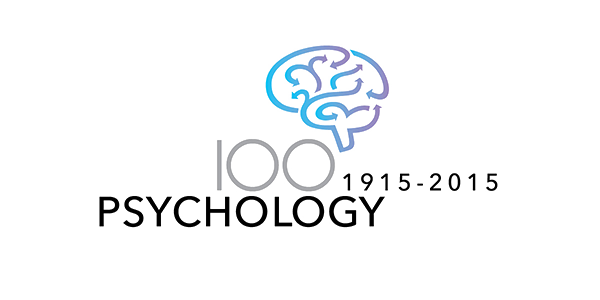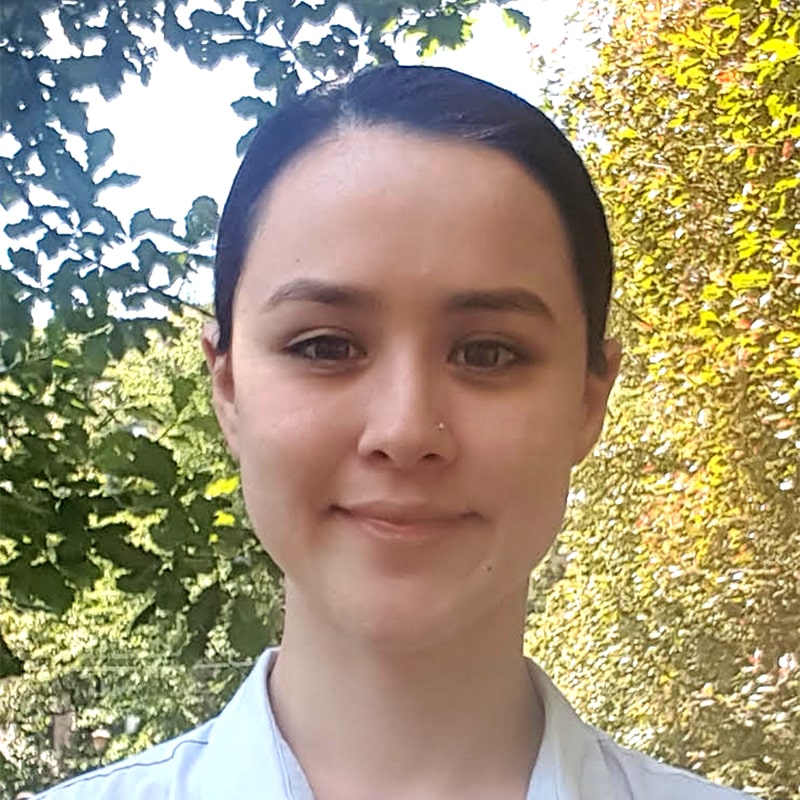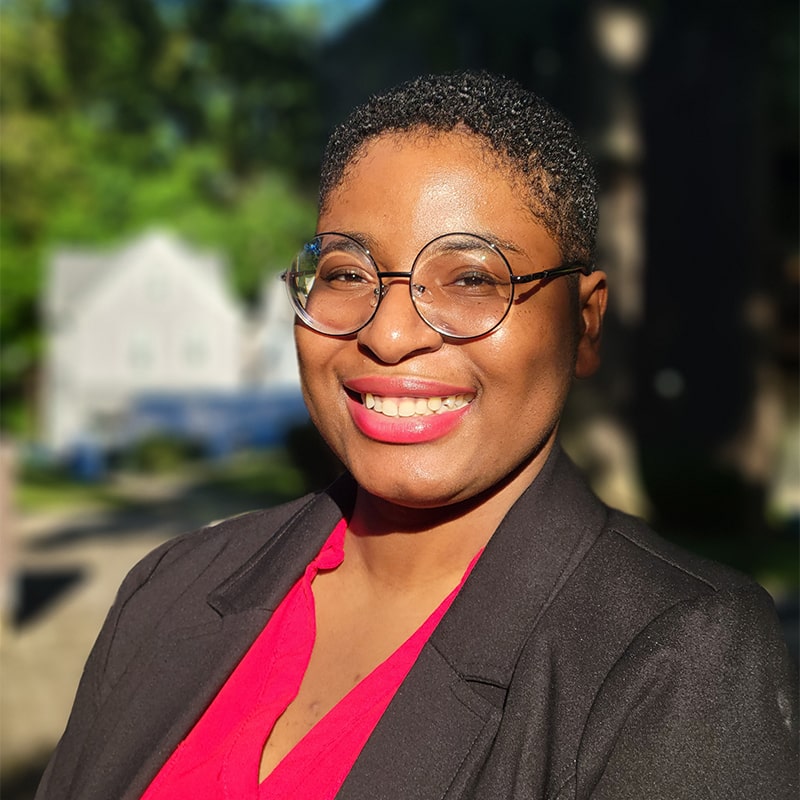Psychology Ph.D. Candidates Receive NSF Graduate Fellowships
By Kirsten Heuring
Two Ph.D. students in Carnegie Mellon University’s Department of Psychology, Chisom Obasih and Sophie Robert, have received Graduate Fellowships from the National Science Foundation (NSF). The fellowship offers a $34,000 stipend along with a $12,000 cost of education allowance for three years. These fellowships will assist Obasih and Robert in their research efforts.
The NSF Graduate Fellowship chooses recipients based on intellectual merit and broader impact. Potential impacts can include science communication, outreach to the broader community or providing visibility for underrepresented groups.
“It is a pleasure to have Chisom and Sophie as part of our graduate program and truly rewarding to see that their research efforts have already paid off,” said Vicki Helgeson, a professor of psychology and director of graduate studies in the psychology department. “We look forward to seeing how their programs of research evolve during the next four years and are pleased that NSF is supporting this work.”
Robert Analyzes Brain Differences in Epilepsy Patients
Robert’s research focuses on how the human brain is organized. By comparing people who have had as much as half of their brains removed for epilepsy treatment with healthy patients of the same age, she hopes to see how the preserved parts of the brain adapt to epilepsy surgeries and how the remaining structures in the brain can reorganize.
Robert sees her work in cognitive neuroscience as an ideal combination between principles of psychology and neuroscience.
“I'm definitely really interested in core questions when it comes to sort of the relationship between psychology and neuroscience,” said Robert. “I think for a long time, there have been these very rich traditions, but they've been separated from each other because they are often studied in different model systems.”
Robert sees the NSF fellowship as a way to develop her research interests.
“I think one really nice aspect of [the fellowship] being supported externally or independently from the department is it allows me to have a lot of flexibility,” said Robert. “My funding isn't connected to a particular research grant, which might constrain some of the questions that I'm able to ask.”
As part of her research, Robert has been able to do research with children who have undergone epilepsy treatment at Children’s Hospital in Pittsburgh. Robert has supplemented this in-person research with Zoom research during the pandemic.
“This is not a very common surgery at all,” said Robert. “It's a very drastic intervention, so with Zoom, we've been able to do online testing with people all across the United States that we might not have been able to study before.”
Robert attributes her ability to do this research to her adviser, Marlene Behrmann, the Thomas S. Baker University Professor of Psychology and Cognitive Neuroscience, who has expressed pride for her student’s accomplishments.
“Sophie is deeply thoughtful about her scientific investigations,” said Behrmann. “You can almost see the wheels churning in her head when discussing the research she is doing. Also, because she has a strong background in philosophy and thinking about knowledge and its acquisition, in addition to well-developed technical and quantitative skills, she brings a keen and critical perspective to the research. It’s a real pleasure interacting with Sophie, and I am enormously enthusiastic about her career trajectory.”
Obasih Investigates How Humans Perceive Sound
Obasih’s research investigates auditory perception and selective attention. She explores how people learn to group together similar sounds based on auditory properties, for example pitch or duration, into auditory categories. She also wants to see how selectively attending to these different properties plays a role in the learning process.
Her research asks English listeners to learn different categories of complex sounds that are based on Mandarin tones. The participants learn to differentiate between aspects of the sounds by paying attention to target tones in the presence of distracting tones. Obasih hopes this experiment will lead to future research to discover how humans learn and differentiate sounds of a new language based on their natural and complex auditory properties.
This research is preliminary, so Obasih is not sure what she might find. Once she has data, she will investigate how people respond to her experiments while they undergo functional magnetic resonance imaging (fMRI).
Outside of the lab, Obasih has brought science education into local Pittsburgh classrooms. She has worked with the Investing Now Tutoring Program at the University of Pittsburgh to introduce local high school students to the sciences. With the NSF fellowship, she plans on continuing this outreach work. Since the NSF fellowship values representation for underrepresented groups, she also emphasized the importance of visibility as a Black woman in science both in her application and in her reaction to the fellowship.
“What I like about being able to have this award is just kind of the visibility that comes with it and then the opportunities to continue to do outreach,” said Obasih.
Obasih attributes some of her success to her adviser, Lori Holt, professor of psychology. Obasih emphasized that Holt helped her through the NSF application process and strongly supports her research.
Holt expressed excitement about Obasih’s research and said she was proud of her student’s work.
“Chisom’s plans for graduate research blend her interests in language and neuroscience in a creative, and potentially transformative, way,” said Holt. “She is developing new approaches to address the unanswered question of how adult spoken language learning proceeds when there is no explicit instruction. I am so pleased that NSF has recognized Chisom’s accomplishments and potential for future success. I am really excited for the opportunity to work together as Chisom works toward her Ph.D.”


